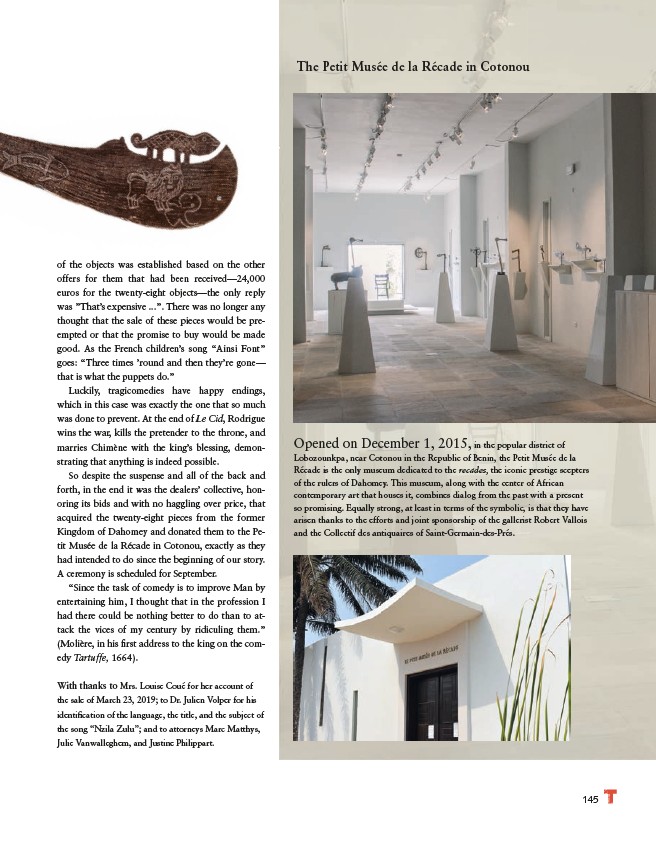
Opened on December 1, 2015, in the popular district of
Lobozounkpa, near Cotonou in the Republic of Benin, the Petit Musée de la
Récade is the only museum dedicated to the recades, the iconic prestige scepters
of the rulers of Dahomey. This museum, along with the center of African
contemporary art that houses it, combines dialog from the past with a present
so promising. Equally strong, at least in terms of the symbolic, is that they have
arisen thanks to the efforts and joint sponsorship of the gallerist Robert Vallois
and the Collectif des antiquaires of Saint-Germain-des-Prés.
145
The Petit Musée de la Récade in Cotonou
of the objects was established based on the other
offers for them that had been received—24,000
euros for the twenty-eight objects—the only reply
was ”That’s expensive ...”. There was no longer any
thought that the sale of these pieces would be preempted
or that the promise to buy would be made
good. As the French children’s song “Ainsi Font”
goes: “Three times ’round and then they’re gone—
that is what the puppets do.”
Luckily, tragicomedies have happy endings,
which in this case was exactly the one that so much
was done to prevent. At the end of Le Cid, Rodrigue
wins the war, kills the pretender to the throne, and
marries Chimène with the king’s blessing, demonstrating
that anything is indeed possible.
So despite the suspense and all of the back and
forth, in the end it was the dealers’ collective, honoring
its bids and with no haggling over price, that
acquired the twenty-eight pieces from the former
Kingdom of Dahomey and donated them to the Petit
Musée de la Récade in Cotonou, exactly as they
had intended to do since the beginning of our story.
A ceremony is scheduled for September.
“Since the task of comedy is to improve Man by
entertaining him, I thought that in the profession I
had there could be nothing better to do than to attack
the vices of my century by ridiculing them.”
(Molière, in his fi rst address to the king on the comedy
Tartuffe, 1664).
With thanks to Mrs. Louise Coué for her account of
the sale of March 23, 2019; to Dr. Julien Volper for his
identifi cation of the language, the title, and the subject of
the song “Nzila Zulu”; and to attorneys Marc Matthys,
Julie Vanwalleghem, and Justine Philippart.